Quarantine means to relocate poultry away from other the other birds so as not to expose them to any possible contamination or the opportunity for attack.
During quarantine isolation the bird/s are treated for external parasites, internal worms, or any illness or injury. This is especially so for any new hens coming into your yard.
At the same time, any established birds in the yard need to also be up to date with their pest dusting and worming treatments so as not to also contaminate the birds who will eventually come out of isolation and join the flock.
WHY QUARANTINE?
Even though a bird may look healthy, they can be carriers of disease which may lie dormant in them but still be communicable, or it may take a couple of days before signs of illness are noticeable. This is why quarantining is so imperative and should NEVER BE SKIPPED.
Injured poultry need some where to recover and avoid being pecked to death by the rest of the flock. And mother hen needs to protect her young and keep their chick food safe from being consumed by the adult hens.
HOW LONG IS QUARANTINE?
3-4 weeks is the standard time.
Less time may be given only to those recovering from injury or operation.
WHAT MAKES A GOOD QUARANTINE?
- As far away as possible from the main chicken coop
- Solid shed/coop that is fit for purpose and clean
- Draft free and dry
- Double fencing, where possible – the second outside fence is as wide as a footpath around the quarantine coop.
- Able to enclose with plastic tarpaulins if required
- Able to be easily accessed by adults
- Fresh food and water
- Some roaming area for dust bathing even if its grass clipping, fine shellgrit or sand provided in large container. Keeping up their grooming will make a big difference to their feeling of wellbeing to aid recovery.
- Options to perch or floor sit out of a draft. Perching is a healthy sign.
YOUR PERSONAL CLEANLINESS
Your cleanliness is just as important to keep your chickens healthy so that disease is not spread.
Keeping the droppings from other birds out of their yard is a priority.
4 simple rules for BIOSECURITY:
- Clean footwear, set aside especially for the quarantine coop.
- Stand boots in a medicated footbath (Virkon S, etc.) if your poultry have a contagious illness.
- If you need to handle the birds:
- Wear an apron, overalls or a different set of clothes
- Wear disposable gloves - Wash your hands and use an alcohol rub every time you enter/exit quarantine.
INTEGRATING THE HENS – Week 3 or 4
Once a hen has been in quarantine for a period of time, the pecking order can change or will be rearranged once new hens are added to the existing flock. This is all normal behaviour.
If quarantining a bird because of their persistent bad behaviour toward other birds, this period of time will usually correct the hen pecking order balance once she is released.
When transitioning NEW hens into an existing flock, week 3 is VERY IMPORTANT.
Remove ONE of the fence lines and start to feed both the new and old hens at this fence line, if this is possible in your yard set-up.
If the quarantine coop is too far away or not accessible for your other hens, then move the new birds into a fenced area NEXT to the older hens during the day. Feed them at the fence line. Fencing could be temporary pet fencing or chicken wire with stakes.
Feeding with just one fence line is socialisation. This will minimise pecking order issues.
Do this for all hens in quarantine who are healthy enough to be introduced to the main flock, in week 3.
ONLY proceed with this step if you are certain that their illness has been resolved.
CLEANING THE QUARANTINE AFTER USE
The quarantine coop must be thoroughly cleaned after use to prevent any future outbreaks.
- Bag up all manure droppings for the general rubbish bin
- Bag up all bedding and nesting materials for the bin
- Sweep out
- Squirt down solid flooring with a hose (where possible)
- Scrub down all surfaces with water soapy water, brush and clean rag
- Spray with a poultry disinfectant spray such as Virkon S, if contagious birds were resident
- Clean out ALL food and water containers with a warm soapy wash
- Allow stand open to air dry
For cleaning out a PET TENT, clean out thoroughly with banister broom, dust pan and vacuum cleaner. Wash the tent sides with warm soapy water. Use an antibacterial spray or Virkon S and allow to air dry outside (away from other hens).

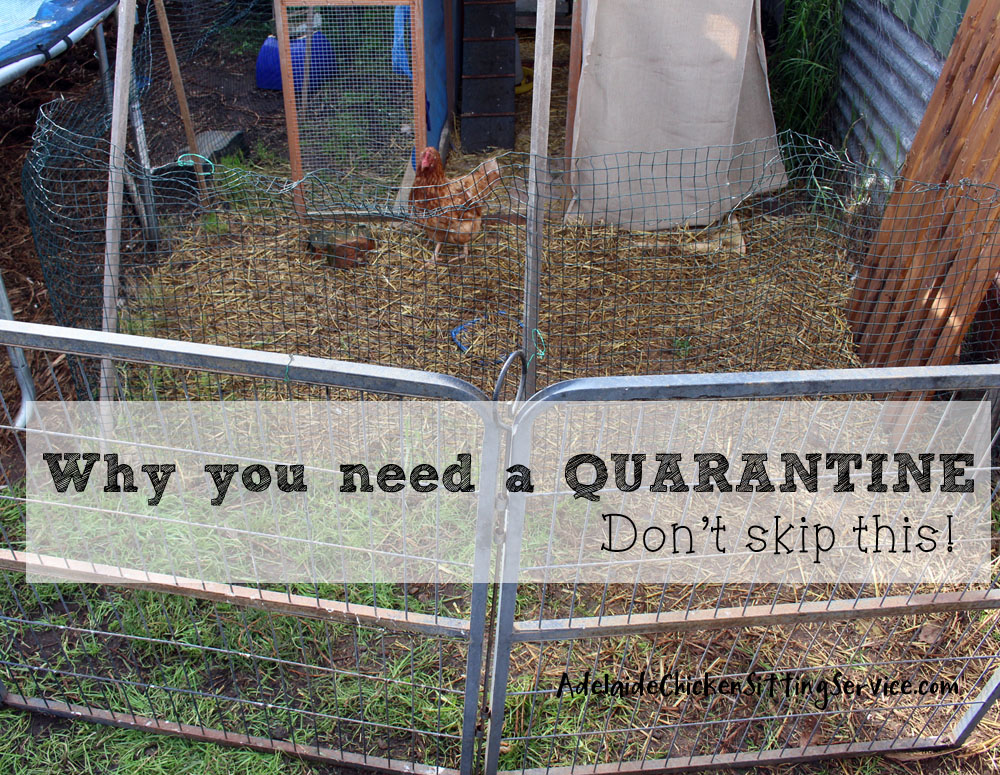
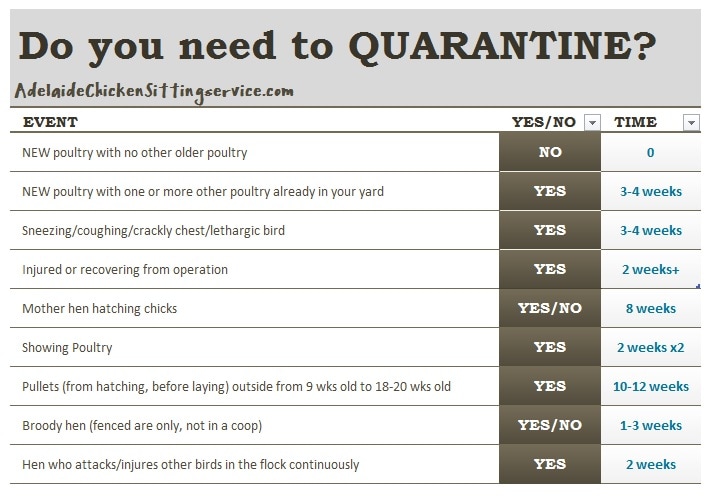
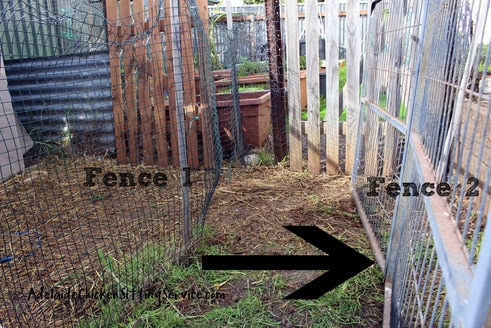
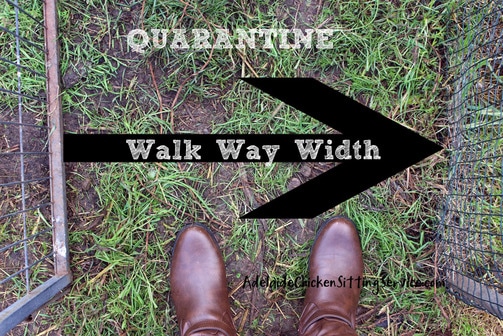
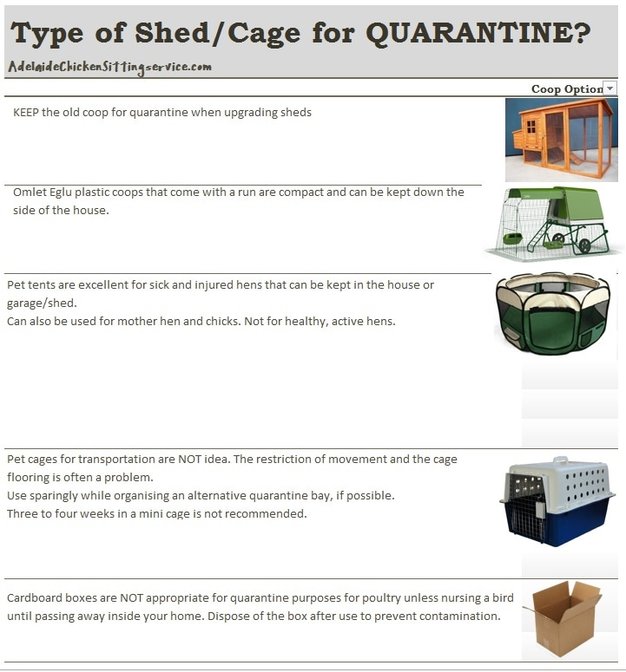
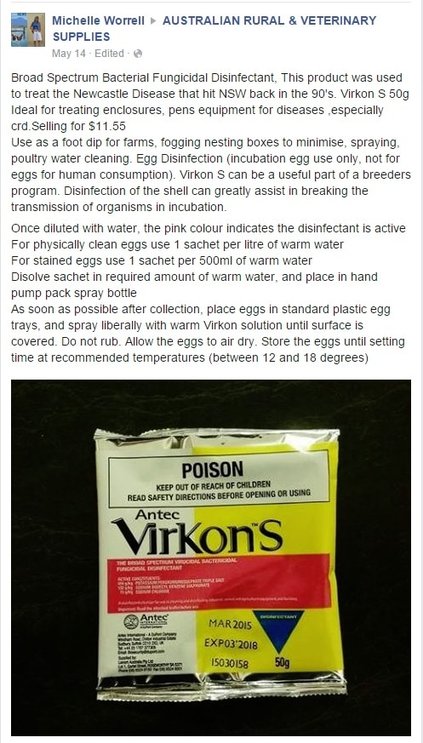
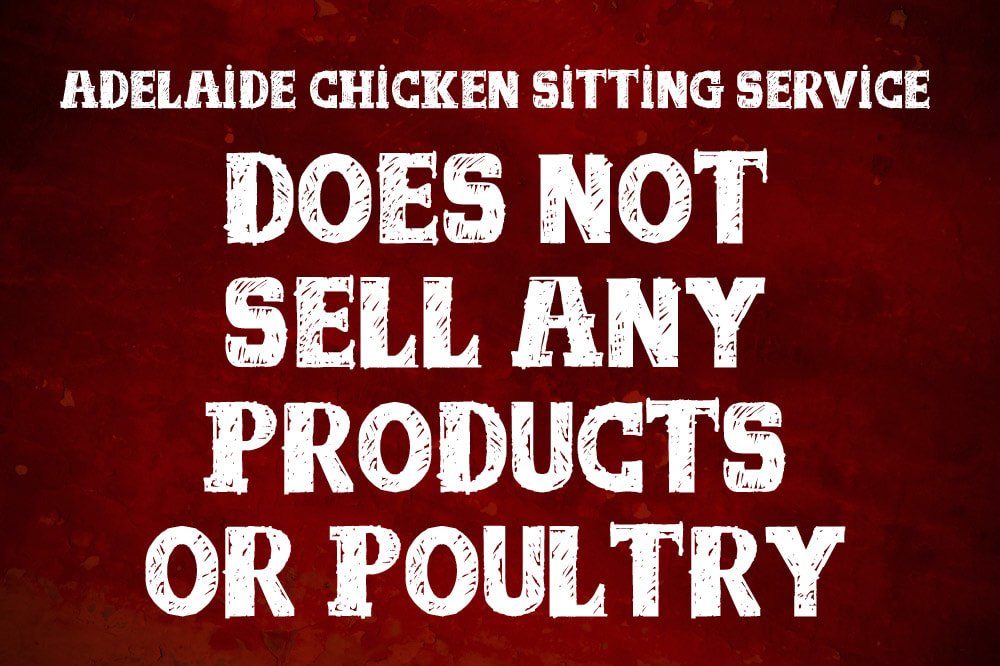

 RSS Feed
RSS Feed